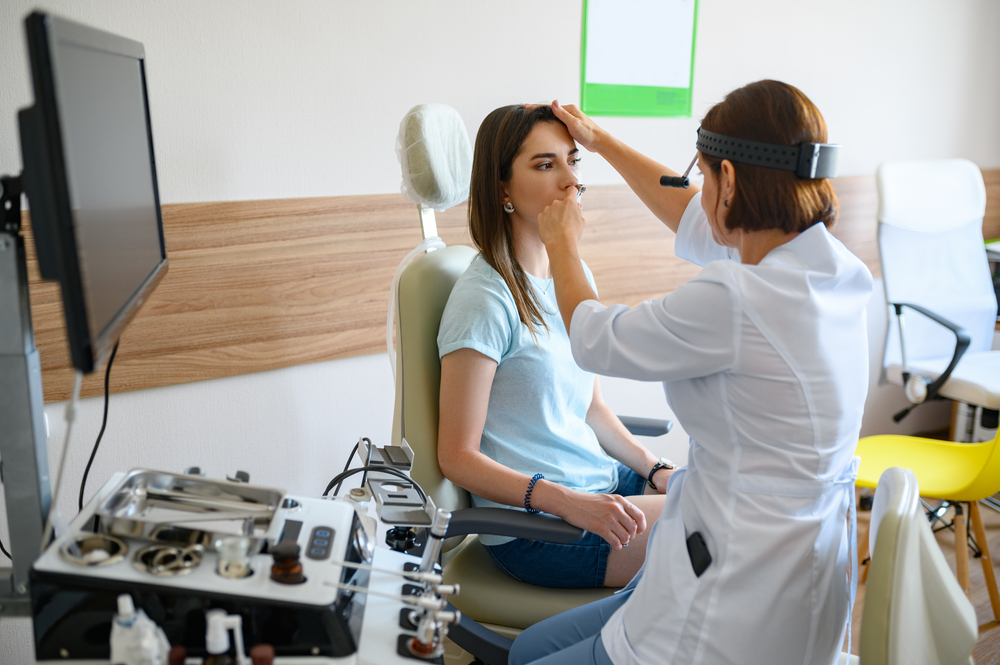Nasal polyps are fairly common, often going unnoticed when they are of small size. These non-cancerous growths, typically adopting a tear-dropped shape, develop along the lining of the nasal cavity or sinuses. In cases where they affect breathing or cause other complications, surgical intervention for nasal polyps may be necessary.
What are signs of nasal polyps?
While these growths are non-cancerous, they can still induce troublesome symptoms depending on their size and whether they form clusters.
Those with nasal polyps may experience symptoms including:
- Trouble breathing
- Congestion
- Loss of smell or taste
- Sinus pressure
- Chronic sinusitis (sinus infections)
- Cough
- Snoring
- Postnasal drip
- Headaches or facial pain
Individually, many of these symptoms may be attributed to other conditions, such as the common cold. However, experiencing multiple symptoms could be indicative of nasal polyps.
If you are encountering these symptoms, seeing an Ear, Nose, and Throat (ENT) specialist can help in determining whether nasal polyps are the underlying cause.
How are nasal polyps treated?
Initial treatments for nasal polyps involve conservative measures with steroids and antibiotics following a confirmed diagnosis. In cases where these interventions prove ineffective, surgical intervention may be recommended.
The nature of the surgery is determined by the location and size of the polyps. If the polyps are sizable and situated near the nasal opening, an in-office procedure may be conducted. The ENT specialist will employ a microdebrider or a nasal polypectomy grasper for removal.
For polyps located deeper within the nasal cavity or sinuses, surgery is carried out in a hospital or outpatient setting under general anesthesia. In this case, you’ll need to have someone accompany you for transportation after the procedure.
The surgery is entirely nasal and doesn’t require any external incisions. Endoscopic techniques, utilizing a slender tube with a camera, guide the surgeon through the nose to pinpoint and remove the polyps.
What should you expect after nasal polyp surgery?
After surgery, you may bleed from your nose for a couple of weeks. You should begin to feel better in just a few days, however, give yourself a full week to recover.
Successful nasal polyp surgery removes the polyps and reduces the patient’s symptoms. The complication rate for the procedure is lower than general surgery, however, polyps can come back in some cases.
Schedule a consultation with an ENT specialist near you if you are experiencing symptoms of nasal polyps and want to explore treatment.



